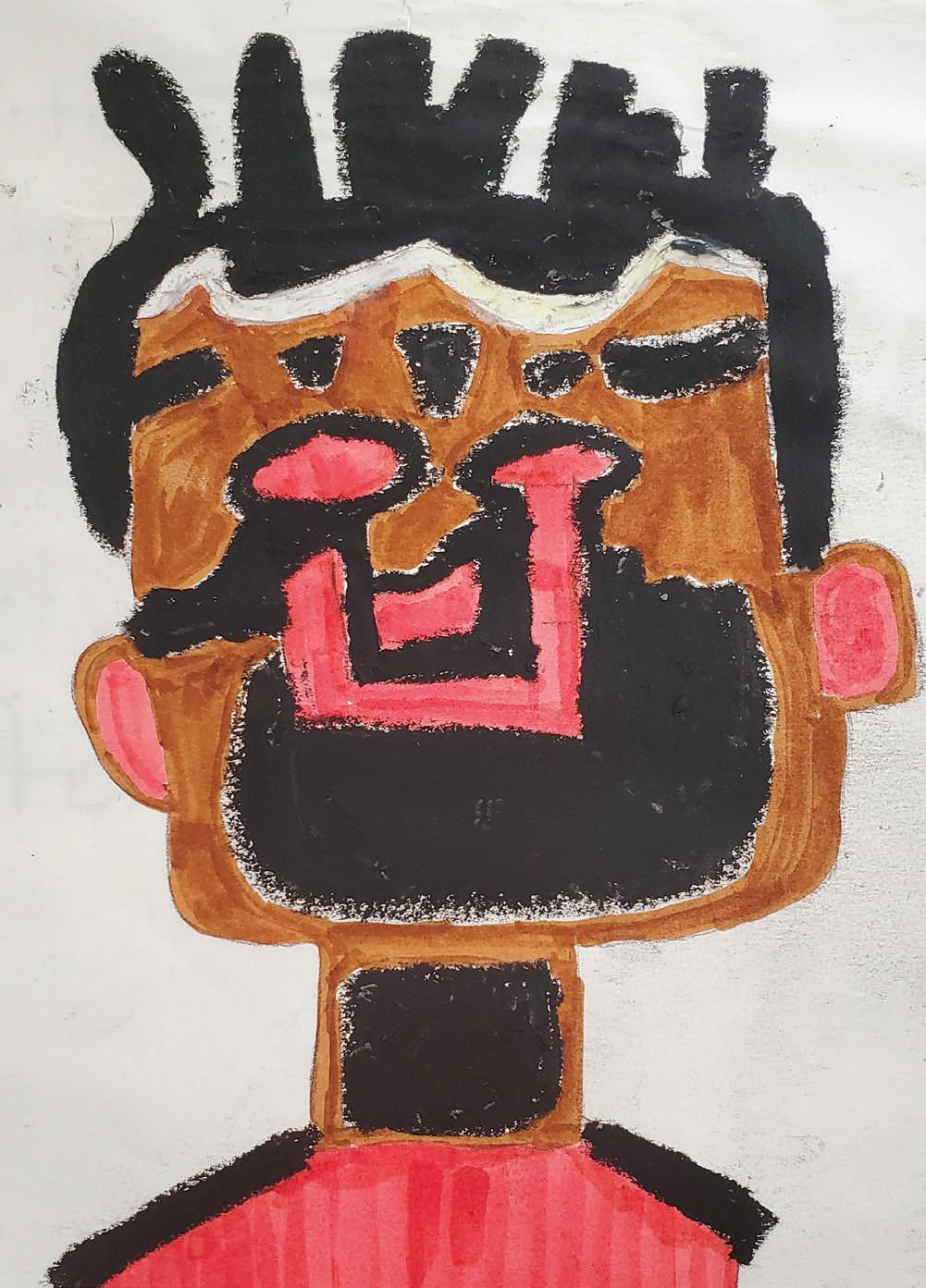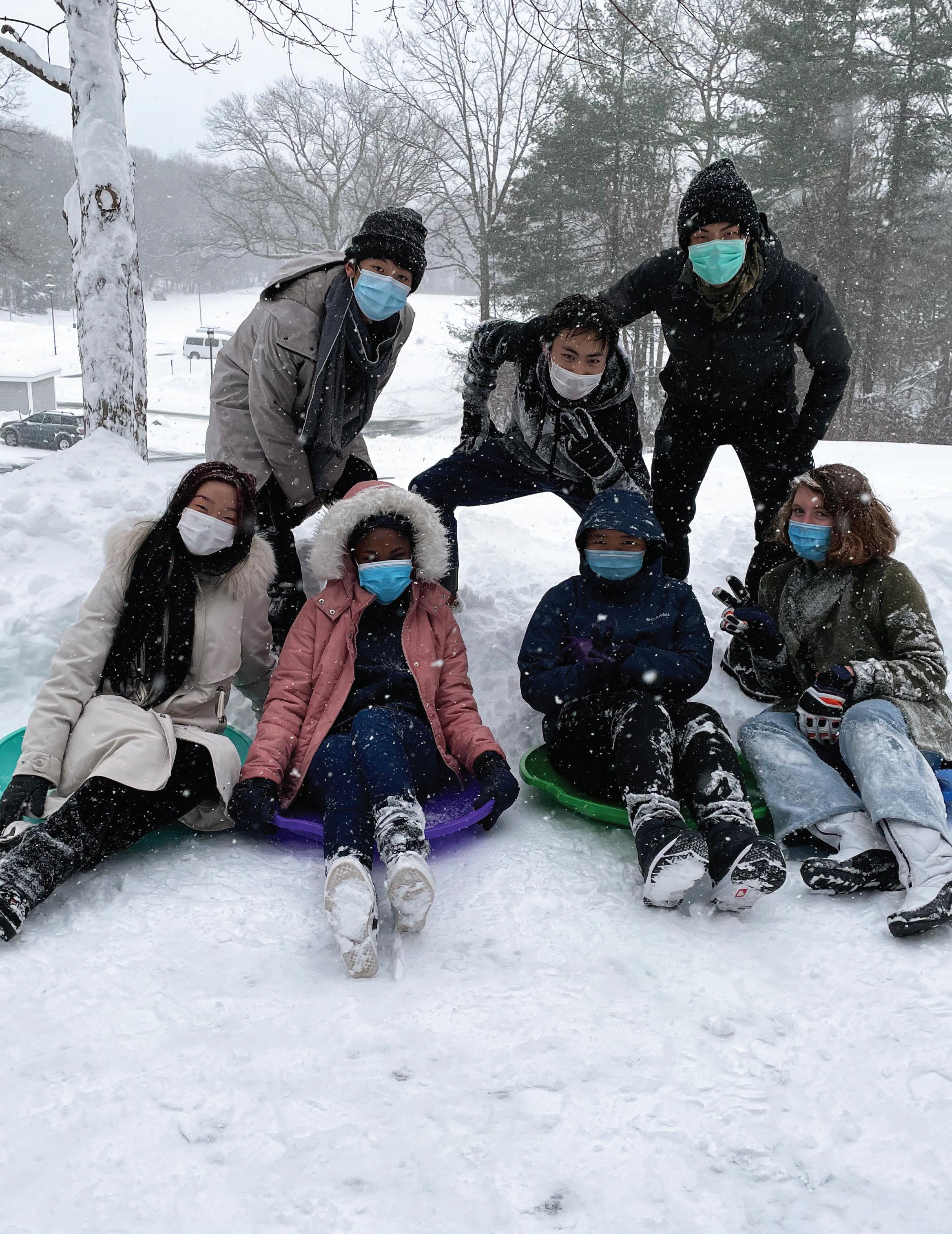
5 minute read
Interview with Roland Gibson
By Rosanna Salcedo
Roland Gibson worked at CSW from 1969 to 1972, serving as one of the school’s first African-American faculty members and administrators. Roland grew up in Cambridge, MA, and attended Rindge Technical High School (now known as Cambridge Rindge and Latin). His freshman year, one of his teachers said to him, “This is a goodlooking report card, boy. You should consider the college program.” Roland received this feedback as encouragement to pursue his highest aspirations.
Advertisement
After high school, he joined the U.S. Air Force where he served from 1955 to 1959. During this period, he was able to see many other parts of the world, and believes that his experiences abroad were crucial to his development, widening the lenses through which he perceived the world. In 1960, he enrolled at Eastern Nazarene College.
Roland recalls not being aware of racism until he began attending college in Quincy, MA, in the early 1960s. He remembers much hostility towards Black Americans in Boston at the time, and can think of several examples of interpersonal and institutional racism that personally impacted him.
Roland accepted his first teaching position at The Bromfield School, a public school in Harvard, MA, in 1965, and taught social studies there until 1969. He learned of The Cambridge School of Weston after a number of students left Bromfield to attend school there.
When asked why he chose to teach in a predominantly white school, Roland says that he “wanted young people to know there was life beyond their world,” and he believed he had experiences and perspectives that would enhance their world view.
CSW Dean of Equity & Inclusion Rosanna Salcedo sat down with Roland in January 2021 to learn more about his experience at CSW.
CSW: How were you welcomed to CSW by the faculty and staff? What was the onboarding like?
ROLAND: I felt welcomed and accepted — no hint of “you don’t belong here,” from staff or students.
CSW: Were you able to find a sense of community among the faculty? Did you feel included?
ROLAND: As I mentioned, I felt like I “fit in.” CSW was not your typical college prep school. My understanding of what education should be was not oppositional to CSW’s approach. Progressive was the term: actions / behaviors were demonstrated: think and do, outside the box.
CSW: Did you ever experience racism with students or adults at CSW?
ROLAND: I have no recollection of personal affront by colleagues or students.
CSW: How were you supported and affirmed by your supervisor and the community?
ROLAND: Headmaster Dave Hardy was very supportive. He never asked me to redirect or modify my approach, which was a student-centered approach of encouraging students to explore, ask questions, and seek deeper understanding of issues, either historical or contemporary. It was okay to challenge or question traditional views. It was also okay to be yourself; one did not always need to conform.
CSW: What could the school have done more to help you feel supported?
ROLAND: I never felt unsupported. To the contrary, I felt encouraged to do more of what I was doing with students. As a history teacher, my job was to introduce them to more than one narrative about American history. Most, if not all. knew the traditional narrative – America was great, land of the free, home of the brave. Part of my job was to introduce them to other narratives, especially in the shadow of the Civil Rights Movement. They got to read The National Advisory Commission on Civil Disorders, a.k.a. The Kerner Commission Report, which concluded: “Our nation is moving toward two societies, one Black, one White — separate and unequal.” Students could make up their own minds about what happened, why it happened, and what could be done to prevent it from happening again.
CSW: Outside of teaching, did you play a special role with students of color at CSW? With white students?
ROLAND: I supported the anti-nuclear war movement. I was an advisor to STOP Nuclear War, a student group. Although I did not live on campus, I spent a great deal of non-class time on campus, interacting with students and attending activities. I was available to all students. I was a role model for all students.
CSW: How do you think you impacted the school during your time as a faculty member?
ROLAND: I definitely felt I added value to what I understood CSW to be all about: There’s more to teaching than covering material. I focused on the “more.” It was not enough to know facts or to pass a test, although facts were important. Studying history is more than a cerebral event, in the distant past. Life experiences are deeply personal and profound.
I’m truly grateful for my CSW experience, which added value to my understanding of what education could be. It also introduced me to the importance of leadership. During my third and last year, the board appointed Bob Peirce as acting headmaster. He had been director of admissions and head of boarding. The board asked him who he wanted to be his assistant. He replied, “Gibson,” and I became assistant headmaster and director of admissions. As a Black male and as an educator, I was a role model.
CSW: Have you remained connected to CSW?
ROLAND: From the time I left in 1969, I have remained connected, attending reunions, and other special events. During Jane Moulding’s tenure I became more connected. Her approach to education, to change, and her leadership skills transformed CSW. She did not know this, but she became my mentor. I consulted with her, on more than one occasion, about an educational matter I was dealing with.
CSW: What else would you like to share with us about your time at CSW?
ROLAND: In a word, my tenure at CSW was transformative. My colleagues were an inspiration and my students enabled me to become a more effective teacher. My introduction to leadership and problem solving added significantly to my professional life and portfolio. It’s been a very special honor to meet former students at reunions and have them share how my classes added value to their lives.
This interview has been edited for length.










